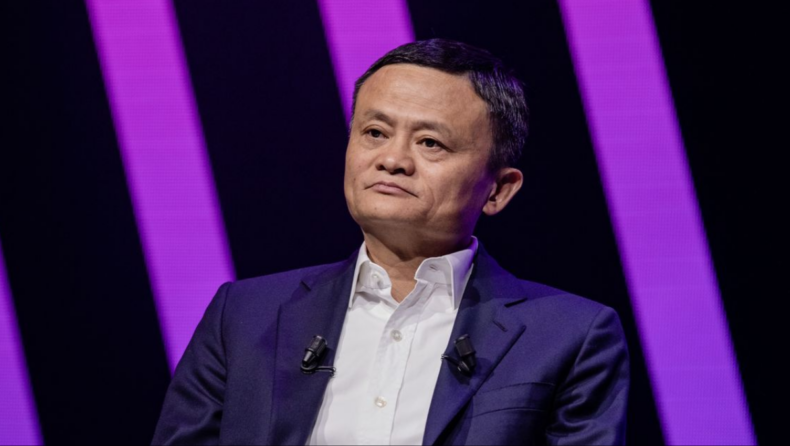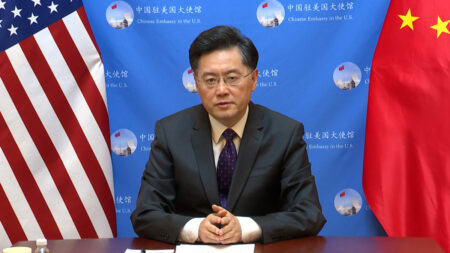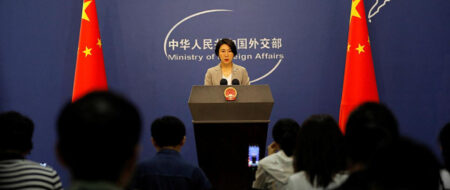Jack Ma is taking a week-long tour of Europe. He has not been seen in public for almost two years. His fintech company, Ant Group Co., has told authorities that Ma wishes to relinquish control. The much-anticipated IPO of Ant could be delayed as a result of the ownership changes. Ant is awaiting the central bank’s approval to assess its request for a financial holding license. The business has increased its capital base to 35 billion yuan ($5.2 billion) and taken steps to erect firewalls in an ecosystem that once allowed it to divert traffic from Alipay.
In addition to other indications that China’s government is easing pressure on the entrepreneur as he steps back from the business empire that had made him one of the nation’s most powerful individuals, Jack Ma is taking a weeks-long tour of Europe after virtually disappearing from public view for almost two years.

Bloomberg and regional media have reported that the 57-year-old co-founder of Alibaba Group Holding Ltd has visited eateries in Austria, visited a university in the Netherlands to learn about sustainable agriculture, and parked his boat off the Spanish island of Mallorca.
It is not Ma’s first trip outside of China since he criticized Communist Party leaders in 2020 over the regulation of his fintech company, Ant Group Co., but it is a significant departure from the times when the authorities forbade the billionaire from leaving the nation.
Alibaba shares quickly dropped by US$26 billion following a state media claim that authorities had put limitations on a person with the last name Ma, showing how uneasy investors had been about the tycoon’s destiny as recently as two months earlier. It was evident from later evidence that the report was making reference to someone else.
Jack Ma had to make a lot of adjustments in order to escape the government’s clutches. Ant restructured its operations to comply with stricter controls after authorities halted the company’s highly anticipated initial public offering in 2020. The company also routinely consults with the nation’s central bank on how to “rectify” operations. Early on, Ant’s success in areas like money market deposits and digital payments put the state-backed banks’ hegemony in jeopardy.
According to sources with knowledge of the situation, Ant has also orally informed authorities that Ma wishes to relinquish control of the firm. They have been communicating their intentions to officials and the central bank for years. One of the people said that one of the ideas being considered includes giving Ma’s shares to other executives so that a committee may manage the firm.

said in a filing this week that Ma “intends to lower and afterwards restrict his direct and indirect economic stake in Ant Group over time” to a level that does not exceed 8.8%. In Ant, Ma currently has 50.52 percent of the vote.
If Ma gives up power, “a huge key man risk will be taken off Ant’s neck,” according to Justin Tang, the director of Asian research at United First Partners.
Requests for comment from Ant, Alibaba, and Ma’s foundation did not immediately elicit a response. A faxed request for comment received no response from China’s central bank.
According to a previous Wall Street Journal story, Ant informed authorities that Ma intends to cede control and may transfer part of his voting authority to other senior executives. As of Friday at 9:49 a.m., Alibaba’s shares on the Hong Kong Stock Exchange were down 4%.
According to sources with knowledge of the situation, who requested anonymity because the information was private, Ant was split out from Alibaba in a convoluted arrangement meant to minimize issues with Chinese rules, which ultimately resulted in Ma having majority voting power.
Ma’s choices at this time might be a means of supporting President Xi Jinping’s goal of establishing “shared prosperity.” His businesses are working to satisfy the requirements of China’s watchdogs, who promised to stop the “reckless” growth of technological enterprises.
In recent years, one of the most carefully observed movements in the global markets has been the Communist Party’s shifting policy toward the private sector, with some commentators even going so far as to declare China’s expansive internet industry uninventable.
Ma had already begun to distance himself from the twin empires of e-commerce behemoths Alibaba and Ant before he attracted the wrath of Chinese authorities. In 2013 and 2019, respectively, Ma left his positions as chairman and CEO of Alibaba. He stated that he planned to donate 611 million shares to charity and reduce his Ant ownership to less than 8.8 percent by 2014.
The much-anticipated IPO of Ant could be delayed as a result of the ownership changes. According to Chinese securities laws, a company cannot list on the A-share market in China if the controlling shareholder has changed within the last three years. The STAR market, which resembles Nasdaq, has a two-year waiting period, whereas Hong Kong’s has just one.
Despite the additional wait time caused by this adjustment, Tang believes it will be insignificant because Ant will not be in a rush to list due to the sluggish markets.
Ant is presently awaiting the central bank’s approval to assess its request for a financial holding license, which is a necessary step for the business to take in order to advance and increase its prospects of going public.
The predicted value of Ant, which was once estimated at $300 billion, has dropped as authorities imposed restrictions on the company’s most lucrative divisions, including consumer lending. Francis Chan, a Bloomberg Intelligence analyst, estimated Ant’s value to be about $64 billion in June.
Ant has increased its capital base to 35 billion yuan ($5.2 billion) as part of its restructuring efforts and taken steps to erect firewalls in an ecosystem that once allowed it to divert traffic from the payment platform Alipay, which has a billion users, to services like wealth management and consumer lending.
The once-largest money-market fund in the world, its own Yu’ebao, saw a decline in assets under control of roughly 35% from a high in March 2020 to 813 billion yuan as of June.

Although the company’s chairman, Eric Jing, said last year that Ant would ultimately go public, the company indicated in June that it had no intention of starting an IPO.
“At the time, Jack Ma held no official position at Alibaba.” “The operations of the firm won’t be significantly affected, in my opinion,” said Jian Shi Cortesi, investment director at GAM Investment Management in Zurich. However, it will cause “investors to concentrate more on the growth of the firm rather than focusing on Jack Ma.”













